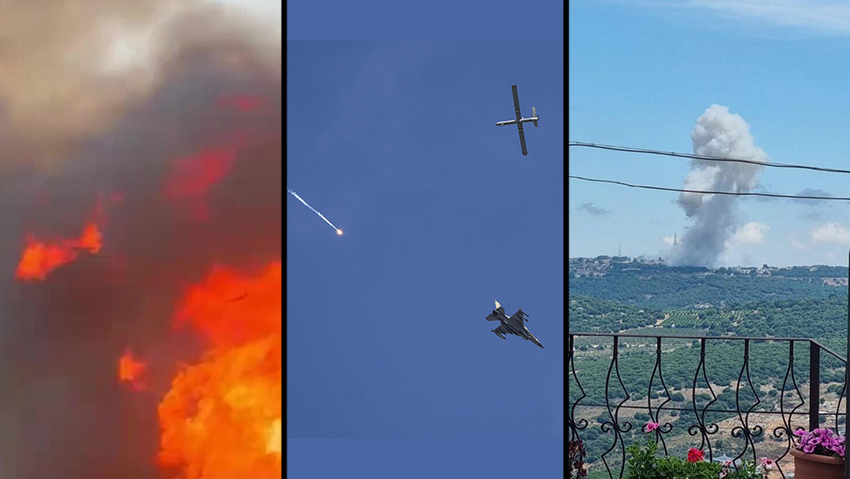Getting your Trinity Audio player ready...
More than 150 aircraft have been intercepted by the air defense forces since the beginning of the war, but many others managed to hit their target – causing heavy damage, including casualties. Now, the security establishment estimates that a better technological operational solution for intercepting these aircraft will be available within three months.
The Defense Ministry allocated hundreds of millions of shekels for the invention and development of a solution, and even gave Israel's defense industries a blank check in order to do so. The main improvement is expected to be seen in Iron Dome, which is already operating in the area, and improvements have been introduced that enable additional detection capabilities to identify suspicious aerial targets in Israeli skies.
In addition to this, the IDF is trying to restore the capabilities of cannons such as the Vulcan, the use of which was discontinued after these anti-aircraft battalions were closed years ago. On the northern border, cannons will be deployed in the Galilee, and their main purpose will be to deal with explosive drones. These drones are characterized by flying at low altitude and speed, and are often launched from hidden valleys and at short ranges in a way that makes detection difficult.
Even though the most improvement is expected to be seen in the Iron Dome missile defense system, sources in the defense system said that using it is expensive and that interceptions are sometimes carried out from fighter planes. Therefore, cheaper solutions must be found, such as advanced cannons with new means of detection. Especially because the security apparatus believes that Hezbollah has thousands of UAVs, as well as the UAVs that Iran and the militias in Iraq possess.
And yet, despite everything, the security apparatus also emphasizes that there will be no hermetic seal against infiltration by UAVs, even if the success rate of the interception is increases as expected.
On Sunday, the Defense Ministry reported that Israel set an all-time record in defense exports for the third consecutive year, surpassing $13 billion in 2023 (about 49 billion shekels). Within five years, the volume of Israeli defense exports is expected to double, despite the war in Gaza and the Defense Ministry's demand to prioritize production for the IDF.
In 2024, according to estimates, the volume of transactions is expected to remain high after the Arrow system was sold by Israel Aerospace Industries to Germany for close to four billion euros. Despite this, the heads of the defense industries fear that Israel's legitimacy crisis in the world will negatively affect exports in 2025, along with France's decision to prevent Israeli representatives and companies from entering the Eurosatory arms exhibition.





